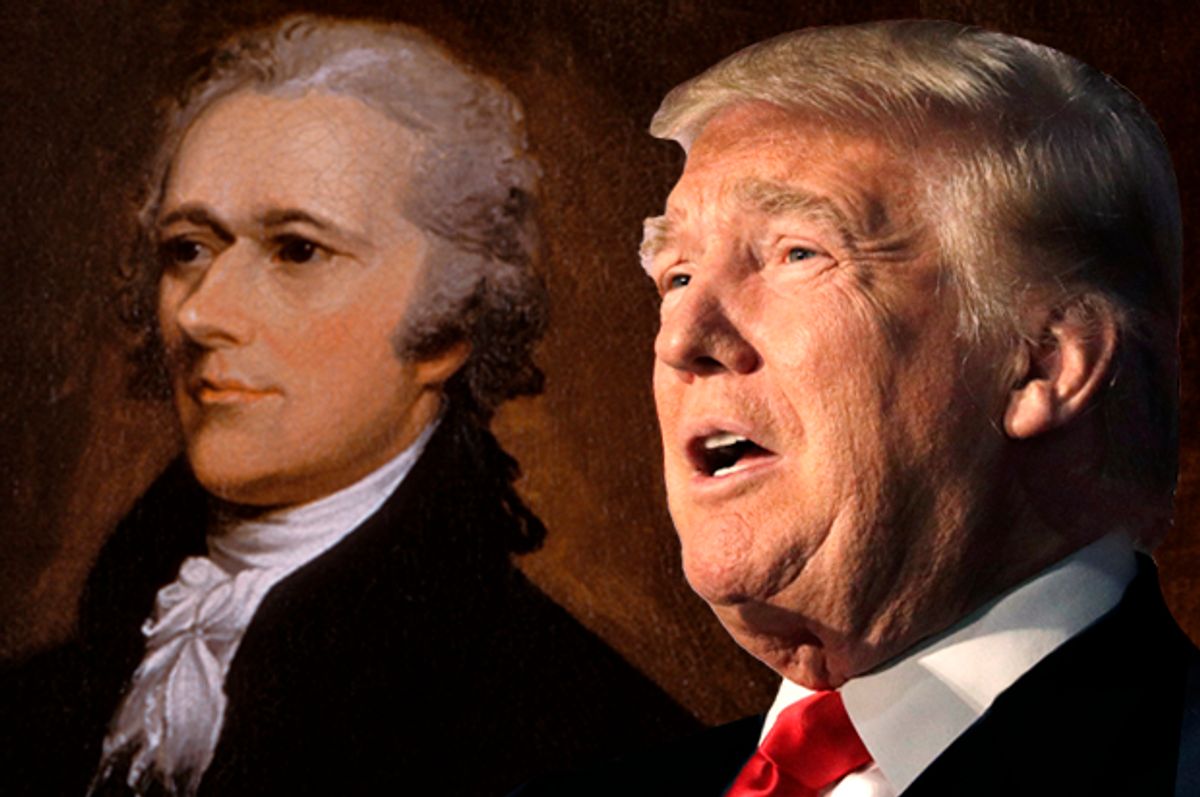The Hamilton Electors — a bipartisan coalition of Electoral College members who, in December attempted to thwart Donald Trump's election by depriving him of some of the 270 electoral votes he needed to become president — are now re-entering the news.
A judge in Washington state issued a ruling during a Wednesday administrative hearing permitting Secretary of State Kim Wyman to impose a $1,000 fine on four state electors who didn't vote for Hillary Clinton even though they had pledged to. Though Clinton won 57 percent of the state's popular vote, three of those electors backed former Secretary of State Colin Powell.
They're now planning to appeal the decision.
"It's just the start of what is probably going to be a longer fight to try to get these state laws, which are patently unconstitutional, found so by the Supreme Court," explained Bret Chiafalo, a Democrat and a leader of the Hamilton Electors. "It's a continuation of what we were trying to do which is just honor the Constitution. And the administrative hearing — the one that just occurred — is just the first step. Administrative hearings can't really address constitutional issues. The next step will be a state appeals court."
In order for the Hamilton Electors to have succeeded, they would have needed to persuade at least 37 of the electors pledged to Trump to abandon him for an alternative candidate (Trump received 306 electoral votes to Clinton's 232). As a demonstration of the fact that this was about country instead of party, a number of Democratic electors would have gone along with them.
Instead only two Republican electors defected, along with five Democrats.
So what happened?
"There's no telling for sure, because we're talking about the minds of about 37 to 50 [potential dissident Republican] electors, but I can give you my best guess," Chiafalo explained in an email. "A big part of it was the fact that Republicans — Republican Party infrastructure — spent quite a bit of money on lobbying individual electors. And from what we've heard, Republican electors were told that their political careers would be over if they did this. And they were also told that this was a grand trick by Democrats to get Hillary elected."
Continued Chiafalo, "As we understand it, a lot of money was spent on this lobbying effort. And we believe ultimately that that's a big part of what wound up happening. Because we had up to 50 Republican electors who were seriously considering it up to a week before the vote."
Chiafalo, and the rest of the electors, knew by the end that their efforts would be in vain, which is why they abandoned their initial plan of trying to convince Republican electors to vote for Gov. John Kasich instead of Trump.
"Basically, by the time that the three of us in Washington state voted, we knew that our grand plan had ultimately not succeeded," Chiafalo said. "And we had a conversation . . . half an hour before voting about what we were going to do to honor the spirit of the Hamilton Electors, and the spirit of what we were trying to do, and we decided to go with Colin Powell. He is certainly a Republican, but we believed he'd be a superior president to John Kasich."

Shares